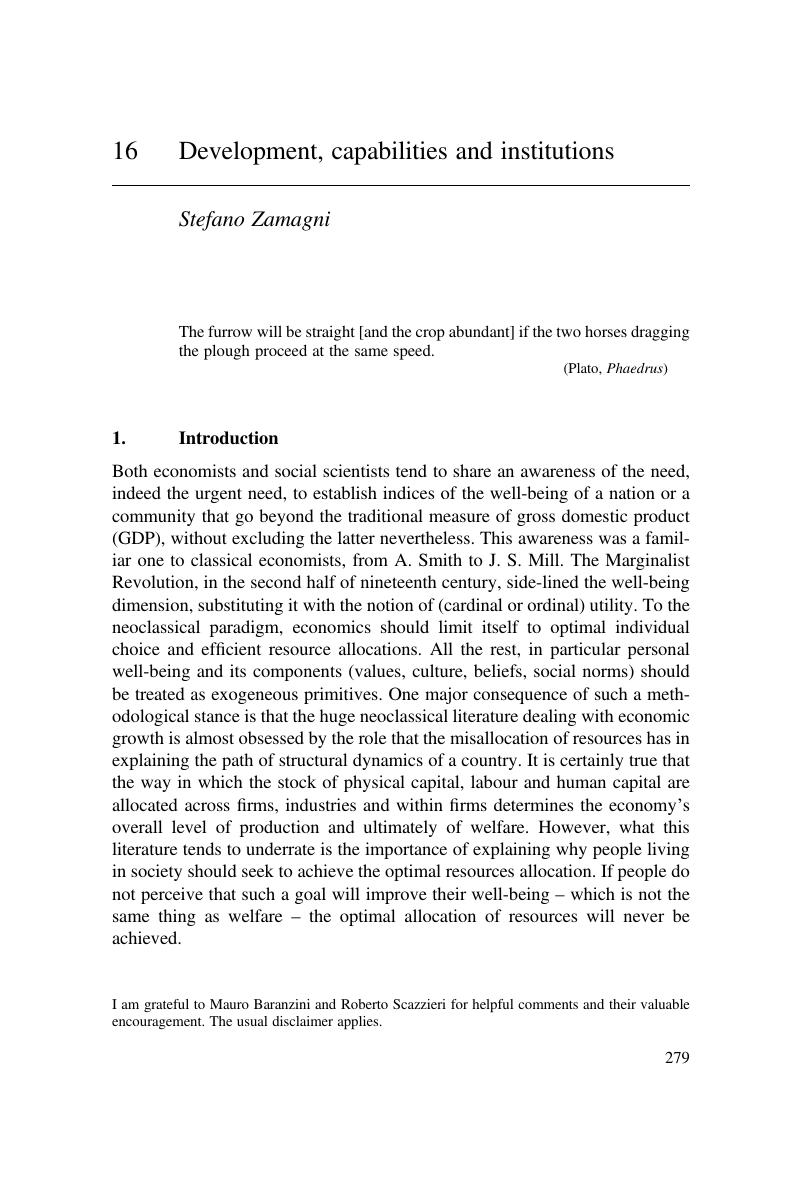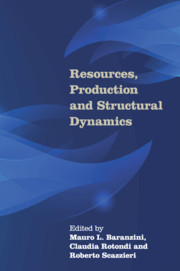Book contents
- Resources, Production and Structural Dynamics
- Resources, Production and Structural Dynamics
- Copyright page
- Dedication
- Contents
- Figures
- Tables
- Contributors
- Preface
- Book part
- 1 Resources, producibility and economic dynamics: a framework
- Part I Resources and distribution in a structural perspective
- Part II Structural dynamics: resources and multi-sectoral linkages
- Part III Resources, institutions and social structures
- 13 Monetary analysis, financialinnovation and institutions before the Industrial Revolution: a paradigm case
- 14 Institutions,resources and economic growth in transition processes: the case of Russia
- 15 Institutions, resources and the commonweal
- 16 Development,capabilities andinstitutions
- 17 Conquering scarcity:institutions, learning and creativity in the history of economic ideas
- Part IV Resources, industrial change and the structure of the world economy
- Part V Towards a political economy of resources and structural change
- Name Index
- Subject Index
- References
16 - Development,capabilities andinstitutions
from Part III - Resources, institutions and social structures
Published online by Cambridge University Press: 05 May 2015
- Resources, Production and Structural Dynamics
- Resources, Production and Structural Dynamics
- Copyright page
- Dedication
- Contents
- Figures
- Tables
- Contributors
- Preface
- Book part
- 1 Resources, producibility and economic dynamics: a framework
- Part I Resources and distribution in a structural perspective
- Part II Structural dynamics: resources and multi-sectoral linkages
- Part III Resources, institutions and social structures
- 13 Monetary analysis, financialinnovation and institutions before the Industrial Revolution: a paradigm case
- 14 Institutions,resources and economic growth in transition processes: the case of Russia
- 15 Institutions, resources and the commonweal
- 16 Development,capabilities andinstitutions
- 17 Conquering scarcity:institutions, learning and creativity in the history of economic ideas
- Part IV Resources, industrial change and the structure of the world economy
- Part V Towards a political economy of resources and structural change
- Name Index
- Subject Index
- References
Summary

- Type
- Chapter
- Information
- Resources, Production and Structural Dynamics , pp. 279 - 298Publisher: Cambridge University PressPrint publication year: 2015
References
- 3
- Cited by

